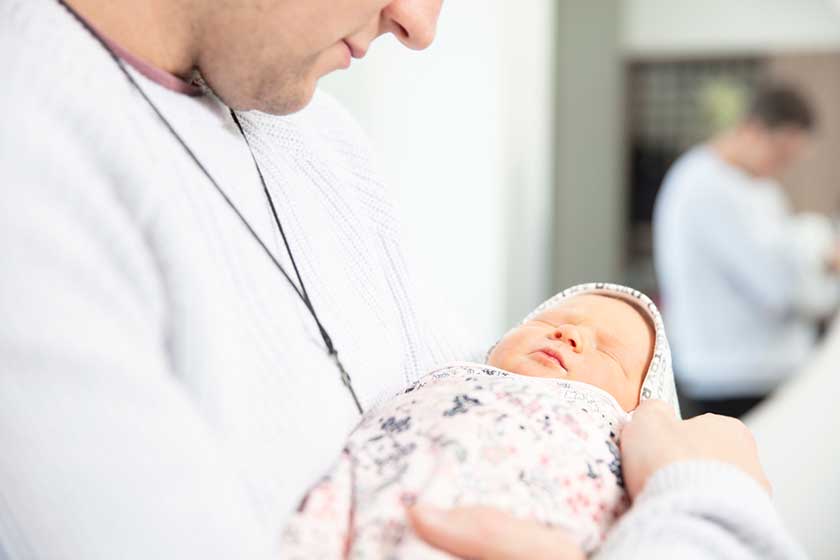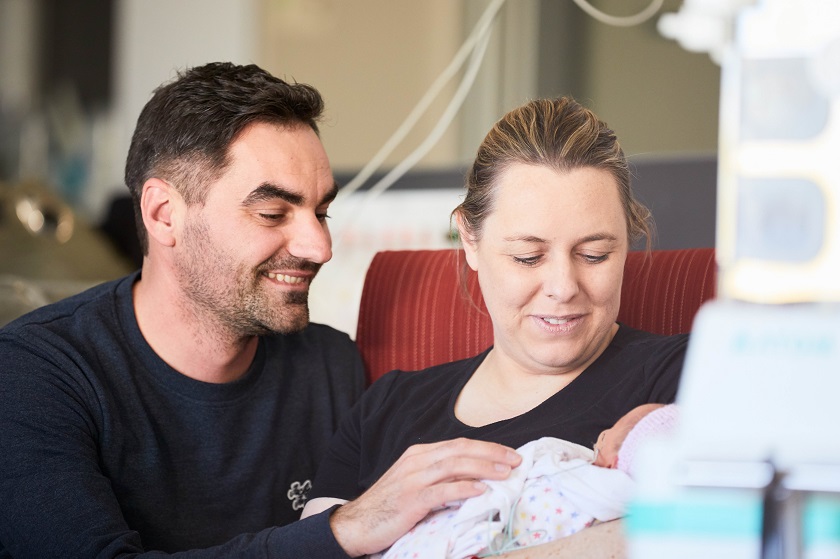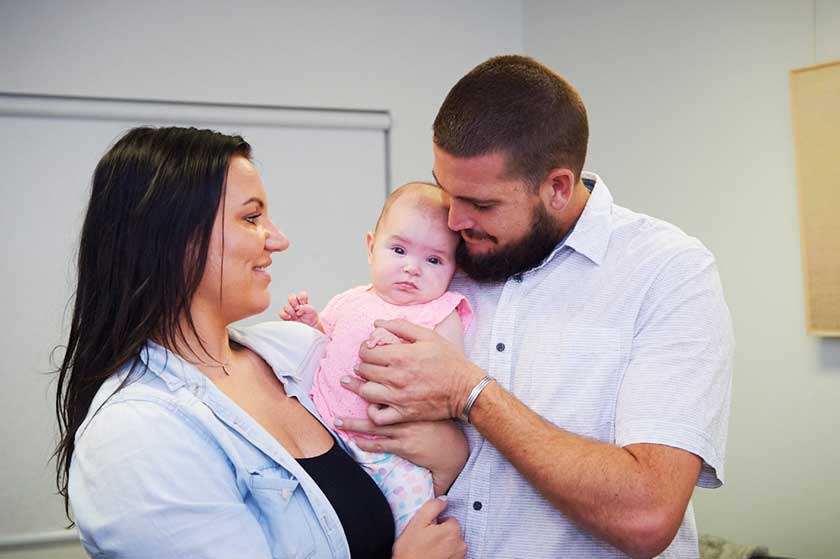The mental health of new fathers is increasingly being recognised as the “missing part of the puzzle” when looking at the emotional wellbeing of families as a whole and the dynamics that enable babies and young children to thrive, yet the emotional challenges that come with becoming a father are often overlooked by health professionals.
Director of Community Mental Health Services, Anna-Marie Thompson says early parenting is complex and it’s common for the entire family to be impacted by the emotional experiences of one member, whether that be a parent or the infant.
“A mother experiencing perinatal anxiety and depression will very often be accompanied by a partner experiencing similar challenges, or a family with an unwell or unsettled baby will have a father who is experiencing high levels of emotional distress as well as a mother,” Anna-Marie said.
The reality is that while mums are increasingly likely to seek support for the emotional challenges of early parenthood, dads are still reluctant, often seeing it as their role to “keep it all together”.
“Our experience has been that dads need to be specifically asked about how they are adjusting to their new role as a parent and if they are coping emotionally,” said Anna-Marie.
“Unless the enquiry is that direct, especially if mum has been diagnosed with perinatal depression or anxiety, dads will rarely confide that they are struggling.”
Up to 10 per cent of fathers experience depression during their partner’s pregnancy or up to one year following the birth of a child, while 16 per cent experience anxiety in the antenatal period and up to 18 per cent in the postnatal period.
In reality the figures may be much higher, as screening tools used to identify maternal mental health problems may be less reliable when applied to men.
Signs of perinatal depression and anxiety in new dads
Anna-Marie said that red flags for screening for perinatal depression and anxiety in new dads included:
- previous struggles with mental health
- major life stresses in the past or present, such as relationship difficulties or past trauma
- a lack of support
- financial stress
- having witnessed their partner go through a difficult birth or having an unwell child
- current or past struggles with alcohol and/or drugs
She also notes that while many of the symptoms of perinatal depression and anxiety were the same in both fathers and mothers, in new dads they tended to manifest as “a short fuse” or extreme withdrawal not only from their usual social supports outside the home, but also from their partner, new baby and older children.
“It’s important to specifically ask how dad is coping as they sometimes think they shouldn’t put their hands up to seek support because it is mums who go through the biggest changes,” said Anna-Marie.
“But we know that seeking support early tends to result in the best outcomes for families, allowing them to thrive as a whole, with parents who have better coping strategies and strong relationships, as well as children whose emotional wellbeing is optimised due to strong bonds with both parents.”
About Raphael Services
St John of God Health Care’s Raphael Services provides specialised treatment in the community for new parents experiencing perinatal anxiety and/or depression and is one of Australia’s only widespread service providers operating in this space.
It offers individual counselling and group therapy, available from pregnancy up to their child’s fourth birthday, and support for families going through prenatal screening or those who have experienced pregnancy loss.
Treatment is provided at no cost for patients who have a referral and Mental Health Care Plan from their GP, making it very accessible, and counsellors are experienced in providing specialised support for the individual needs and challenges of dads as well as mums.
Raphael Services at a glance:
- 10 locations in Victoria, Western Australia and New South Wales
- over 23,700 individual counselling sessions annually with new parents
- 84 per cent of Raphael Services clients report that the service has made a difference for them.











